If all your information about the affiliate marketing industry comes from social media content creators who promise they earn $100,000 a month while working only two hours a day… You can be confident that’s probably too good to be true.
What you really want to know is:
- Is affiliate marketing a strategy worth investing your time into (read: would you really have to pay affiliates that much money from the get-go?)?
- What trends should you look out for (either as a brand or as someone who wants to get into affiliate marketing)?
- What’s all the hype about?
If you’re interested in learning more about affiliate marketing and what it has in store for 2024, this article is for you.
In this article:
- What is an Affiliate Marketing Strategy?
- Top 7 Affiliate Marketing Trends You Should Look Out For

Here, we’re discussing all the need-to-know information about affiliate marketing, with a special focus on the trends to watch in 2024 as an affiliate marketer. Let’s dive right in.
What is an Affiliate Marketing Strategy?
Think of it this way — you run a niche fragrance shop and have a signature scent that you want to promote (oh, and imagine you already have some loyal customers who love your product).
One fine day, one of your loyal customers comes into your store and tells you that their friends often ask about the scent, but they don’t share your brand name with them because they don’t see it as a win-win.
So you make them a promise that for every sale you get through them, you’ll pay them a 10% commission.
True to your promise, at the end of every month, you transfer the money to the bank account of this customer, through which all these sales were possible.
That’s exactly what affiliate marketing is — it’s the practice of brands collaborating with loyal customers and influencers and paying them a commission for every sale they get through them.
According to Influencer Marketing Hub’s data, a majority (57%) of those who invest their time in affiliate marketing end up earning $10k annually.
However, 11.72% of those interviewed also said they earned more than $100k yearly.
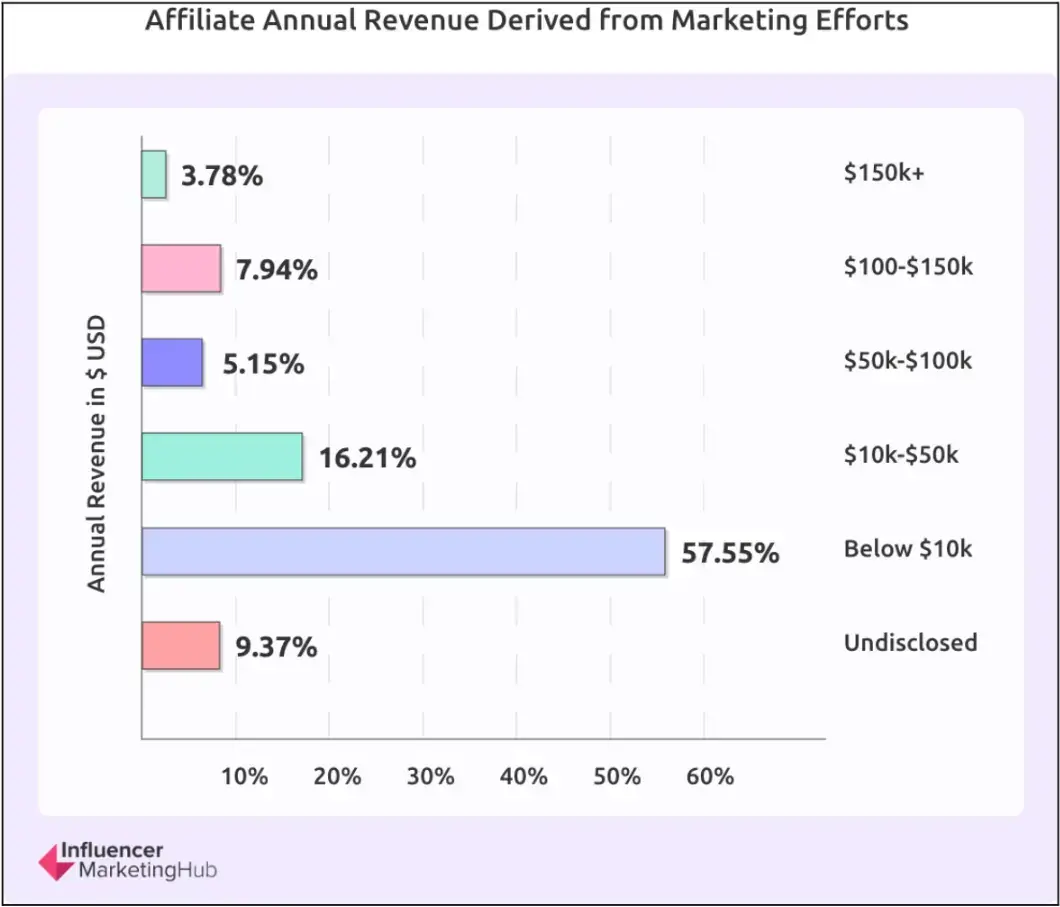
Having said this, investing in affiliates is an excellent strategy for any business — regardless of your industry — so even if it takes a pretty penny to hire and retain the top affiliates, the investment is well worth the ROI they produce.
And just to lay out the importance of how impactful affiliate marketing can be, here are a few points to consider:
- Spending through affiliate marketing sales is reported to be $15.7 billion in 2024 alone (and the number continues to rise).
- 54% of brands said affiliate marketing was one of their top customer acquisition sources (even ranking above paid social, word-of-mouth marketing, organic search, and ads).
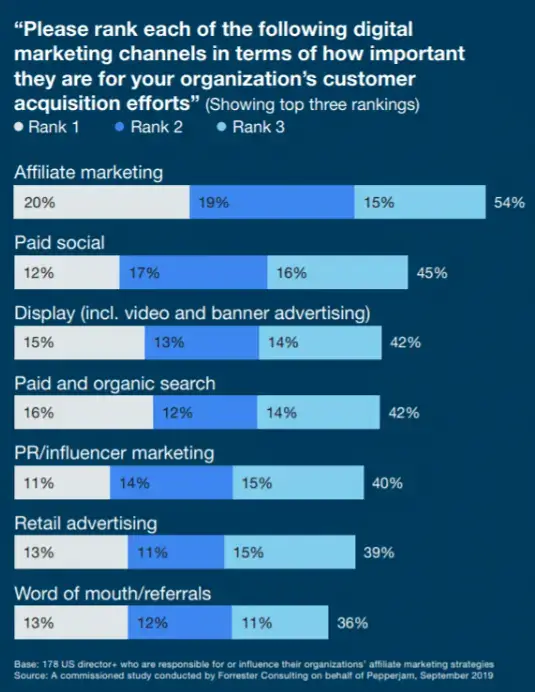
Top 7 Affiliate Marketing Trends You Should Look Out For
- Rise of influencer marketing
- Evolution of affiliate marketing programs & networks
- Shift towards video content
- Further importance of mobile optimization
- Growth of niche markets
- Increased role of AI and automation
- Emphasis on transparency and authenticity
Let’s peel back the curtain on these top 7 trends that will drive this industry now and in the years to come.
1. Rise of influencer marketing
In the past, most companies relied on their loyal customers to handle affiliate marketing. However, a growing number of companies are now shifting their focus toward influencers across social media platforms.
Why? Primarily due to their wider audience reach, which means more sales in a limited period of time. This strategy has proven effective for brands (consider Exhibit A below):
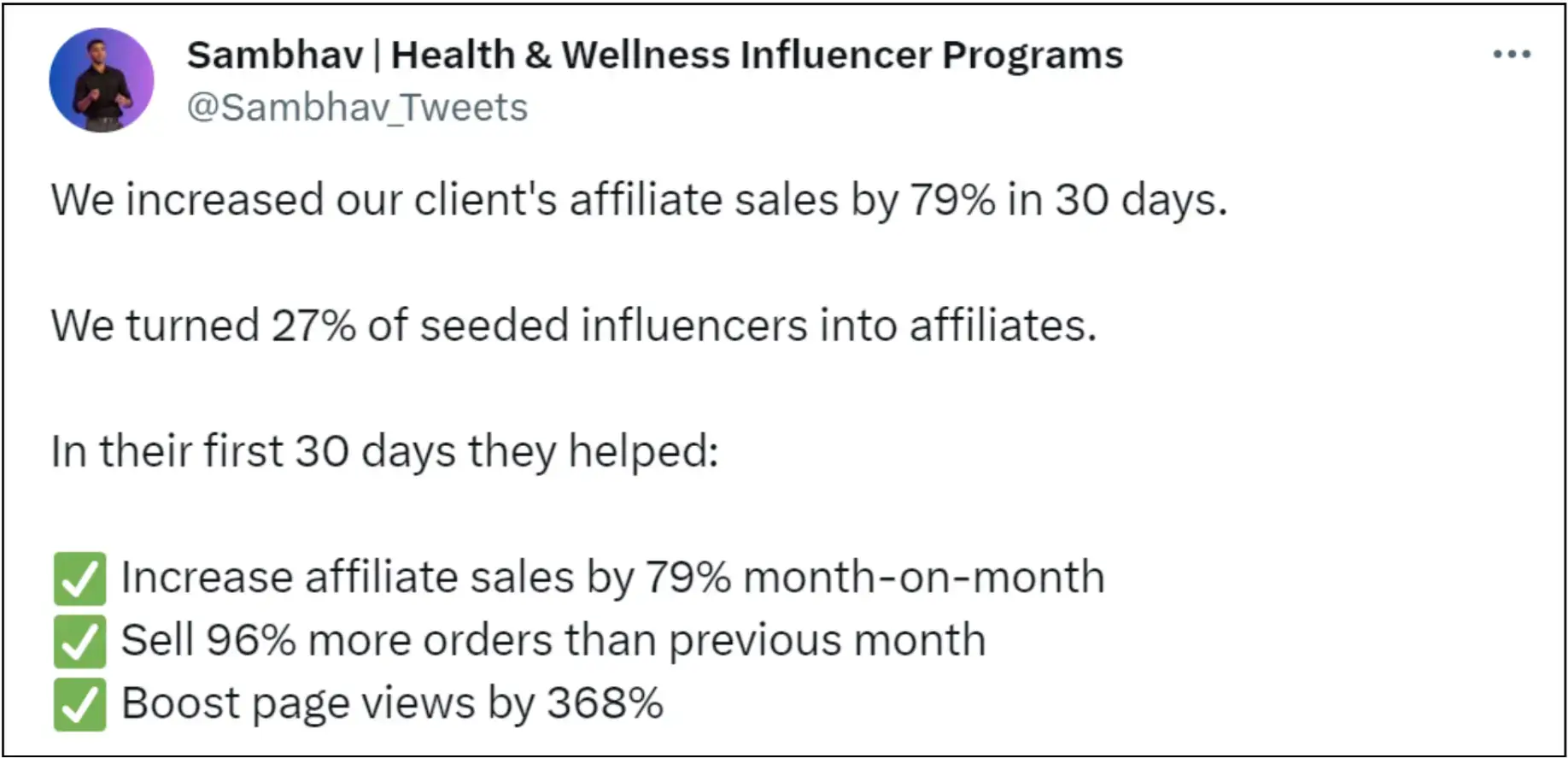
And here’s some more data to drive the point home:
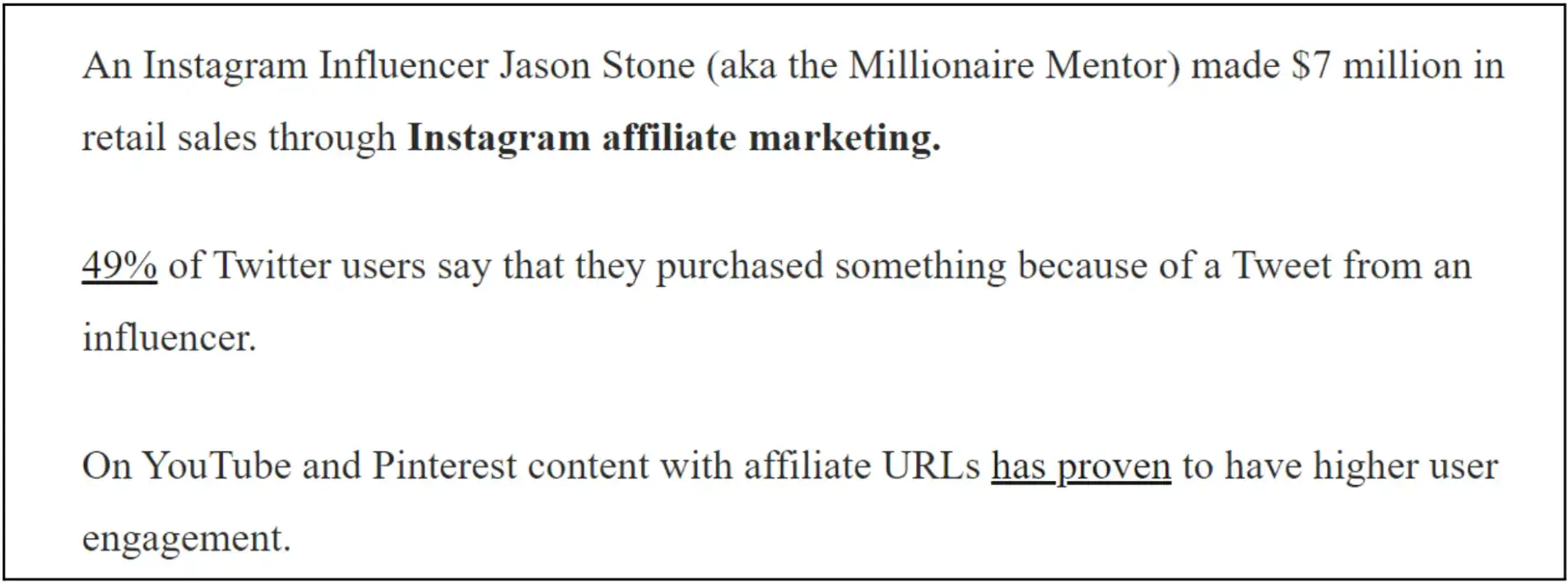
While on that topic, if you’re wondering which social media influencers to partner with, we recommend looking into micro-influencers.
This is mainly because almost 8 out of 10 customers are more likely to be influenced by micro-influencers than by mega-influencers. These influencers also have 22.2x buying conversions.
That said, different types of influencers bring different benefits (e.g., mega influencers help boost product goodwill, which can also impact your affiliate marketing campaigns).
2. Evolution of affiliate marketing programs and networks
Let’s face it — you and I aren’t the only ones paying attention to the importance of affiliate marketing. Countless people have invested time and energy into building affiliate marketing programs and networks.
These programs have existed for years, but are now becoming more strategic with features like:
- Handling payments and incentivizing affiliates
- Reporting, tracking, and analytics
- Updating deals and affiliate links
- Matching leads with affiliates
For these reasons, it now makes sense to invest in organized affiliate marketing programs and networks.
To create and run a successful affiliate marketing campaign for your WooCommerce shop, use the WooCommerce Affiliate plugin.
If you need to launch an affiliate marketing campaign for your Shopify store, try ReferralCandy's affiliate tool.
These tools help manage payments, track referrals, and generate powerful reports for smooth interactions with affiliates.
3. Shift towards video content
Video marketing has been on the rise, with 87% of brands agreeing that videos deliver positive ROI.
Naturally, affiliates are leaning toward video content, too.
Creators on Instagram often use Reels to promote affiliate products. The same is true on TikTok.
Businesses need videos to educate audiences, showcase value, and boost engagement. Many affiliates are also embedding videos in their websites (e.g., Dan Flying Solo’s travel blog):
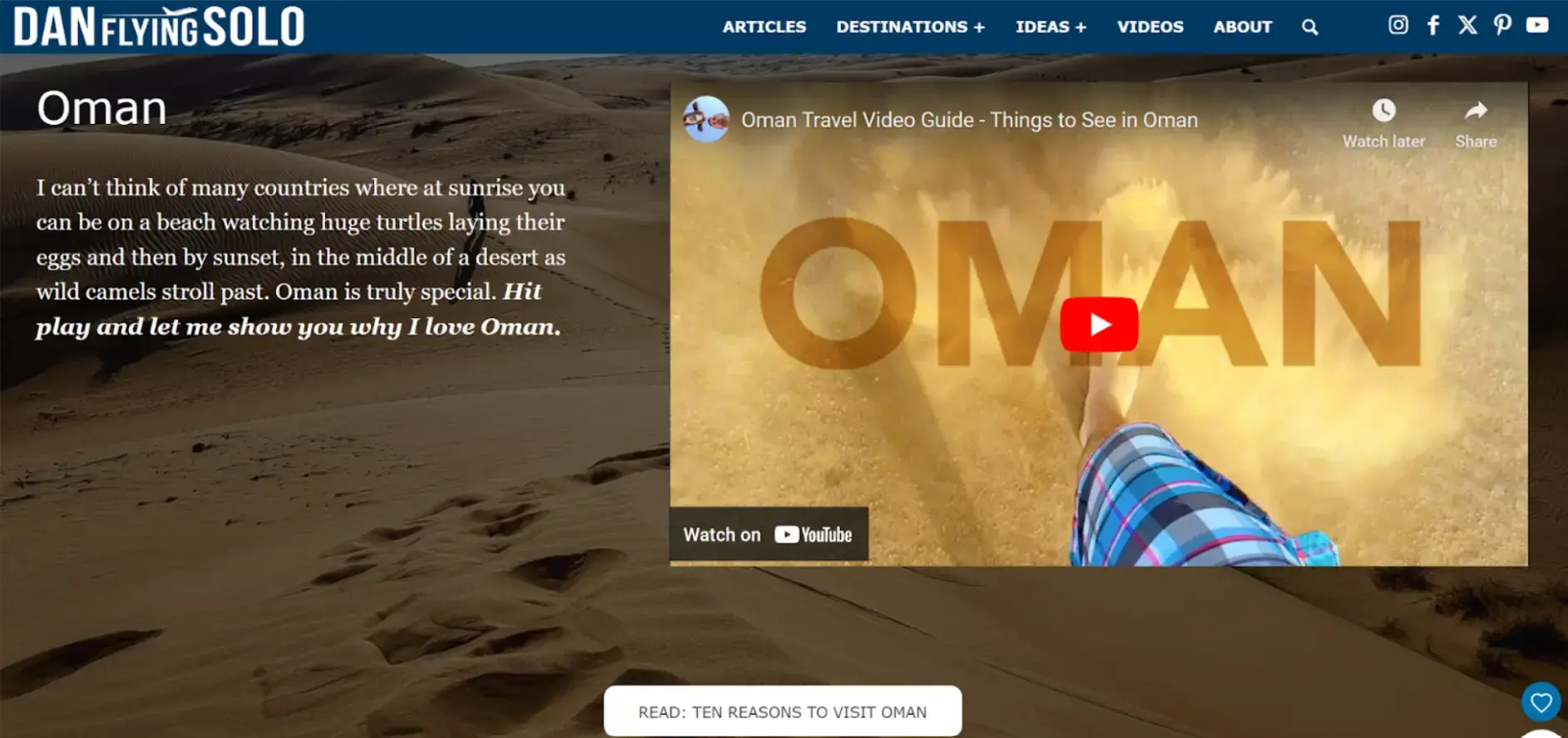
4. Further importance of mobile optimization
Mobile optimization isn’t a new trend — but it remains essential.
If your site isn’t optimized for mobile, your visitors may leave without converting or may not return.
Key issues include:
- Poor experiences causing users not to recommend your site
- Visitors not returning due to frustration
Side Note: Being mobile-friendly also helps you reach a wider audience, especially if you focus on niche content or optimize for voice search.
5. Growth of niche markets
We know we already discussed the importance of niching down, but it bears repeating.
If you try to appeal to everyone, you risk speaking to no one.
Companies can promote affiliate marketing for specific products to build brand recognition in key areas. Affiliates can also build audiences around niche topics — for example, under “Travel,” you might focus on “Camping in North America,” similar to this example from Cruise America:
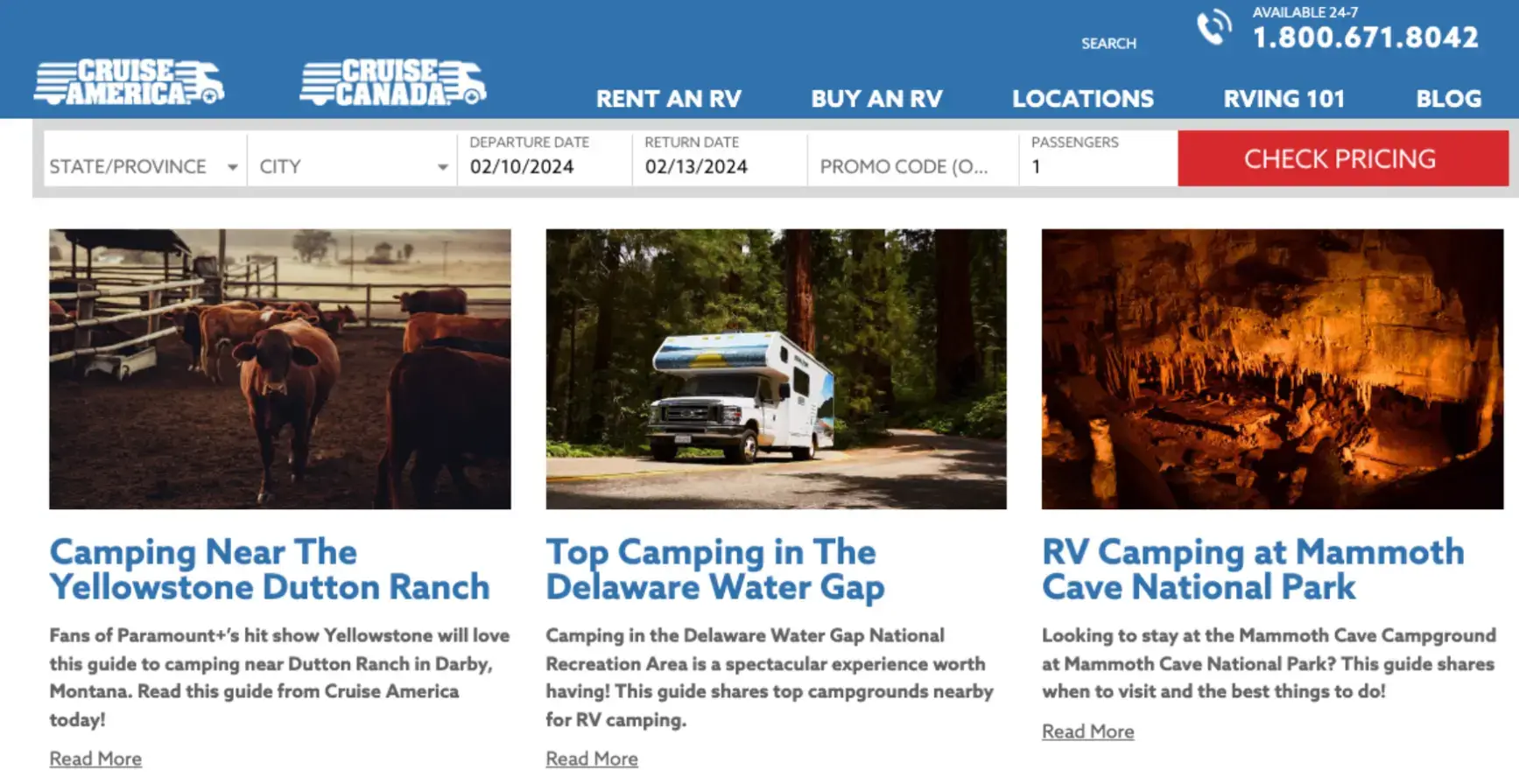
6. Increased role of AI and automation
The use of artificial intelligence is rising across industries, and affiliate marketing is no exception.
Experts predict that AI will soon take over tasks like:
- Fraud detection
- Relationship management
- Content creation
Automation will also streamline campaigns with targeted content, analytics, and optimization.
Tools like Jasper help write scripts and blogs. SurferSEO helps integrate keywords for SEO and voice search. Other platforms, such as PartnerStack and UpPromote, also integrate AI-driven capabilities.
7. Emphasis on transparency and authenticity
Transparency is becoming increasingly important.
Aside from legal requirements, being honest with your audience is a good practice. It prevents misleading them and builds trust.
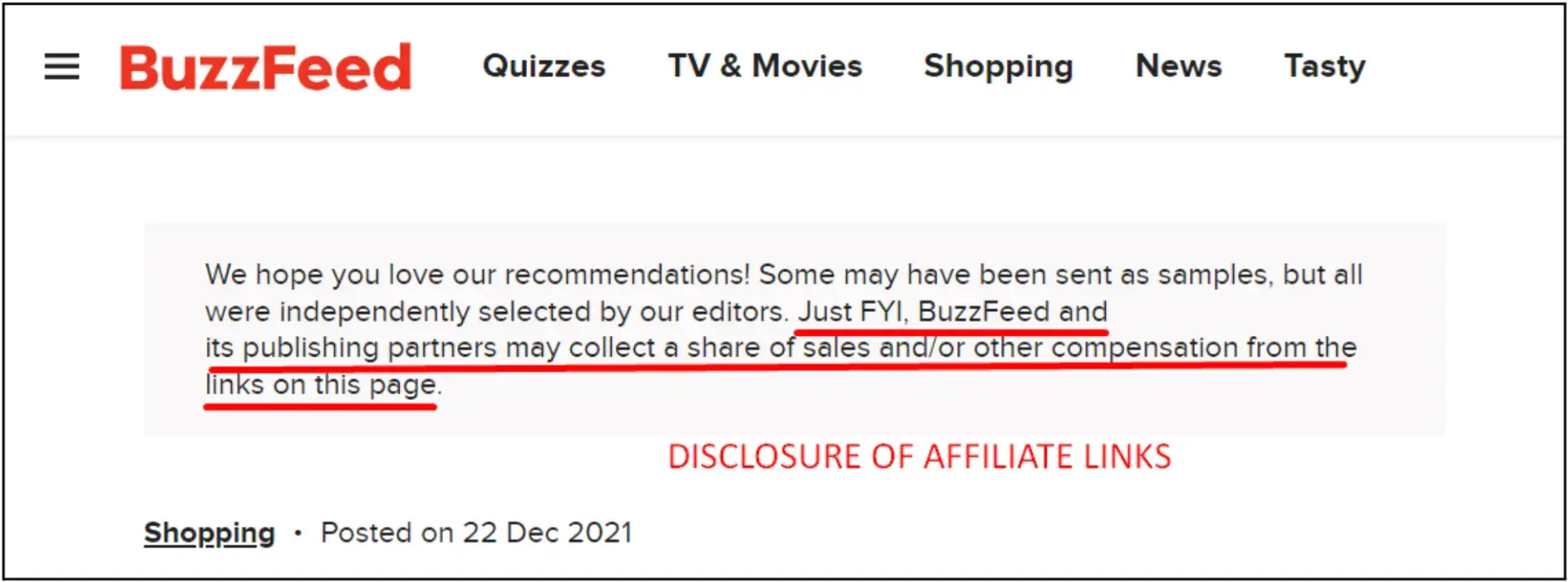
Building authentic relationships with your audience increases the impact of affiliate campaigns.
It’s also good practice to inform your affiliate traffic that you’re tracking consumer behavior through cookies and cross-device technology.
Next Steps
If you wish to convert potential customers through your affiliate marketing campaigns, you also need to engage with them and deliver value.
POWR can help you on both fronts. How?
You can use features such as:
- Live chat, FAQ sections, and navigation tools to provide value
- Pop-ups, maps, hit counters, and multi-slider banners to engage visitors
And if you want access to all of these benefits for free, sign up for POWR now!
The future of affiliate marketing is bright — how will you capitalize on it?

Author Bio
Jeremy is co-founder & CEO at uSERP, a digital PR and SEO agency working with brands like Monday, ActiveCampaign, Hotjar, and more. He also buys and builds SaaS companies like Wordable.io and writes for publications like Entrepreneur and Search Engine Journal.


